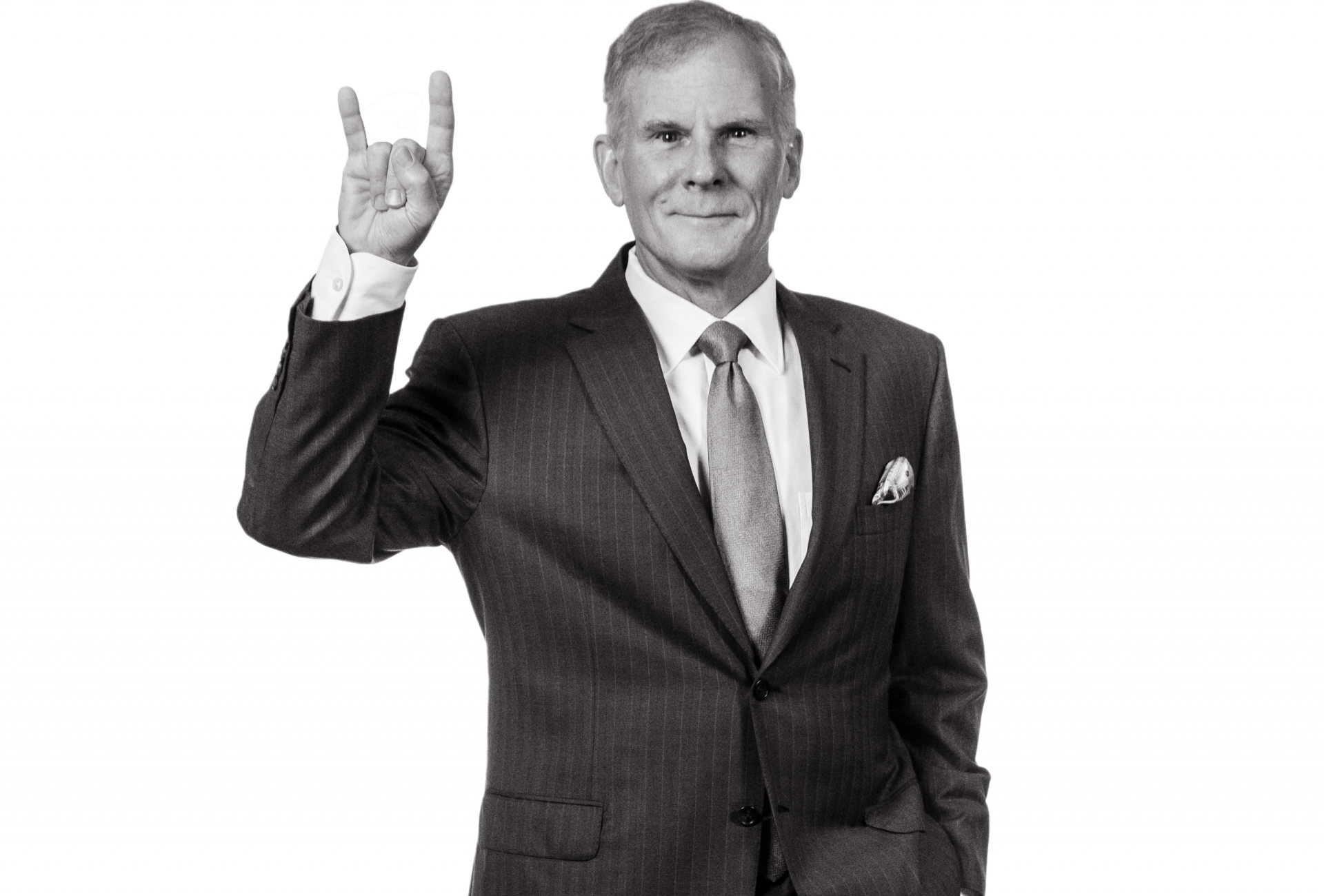Stuart Stedman is the president of Stedman West Interests, Inc. He serves on the advisory board of the Caesar Kleberg Wildlife Research Institute and has been involved in wildlife research and conservation for many years. In 2016, he was appointed to a three-year term on the Texas Higher Education Coordinating Board by Governor Greg Abbott. Stedman served as the chair of the Liberal Arts Advisory Council (2017-2019), and he is a member of the University of Texas Development Board and the Blanton Museum’s National Leadership Board.
Education: B.A. Plan II Honors ’79, J.D. and MBA ’85, The University of Texas at Austin
Hometown: Houston, Texas
What’s your fondest memory from the Plan II Honors Program?
Two Plan II experiences stand out for me.
Professor [Franklin] Bronson’s Environmental and Population Biology course was my first formal introduction to principles ecology and population dynamics, a foundation for my life-long interest in wildlife research. Plan II students hated that course because the tests — multiple choice peppered with answers like “a, b, and c, but not d” — were extraordinarily difficult. Students got an ‘A’ only if they have a complete and total understanding of the material. So, in addition to providing me with the foundation for environmental science, the course taught me how to understand a concept completely and from all angles.
In contrast, Robert Kane’s two semester philosophy course challenged me in a way few subjects have. I loved the course content and Dr. Kane’s teaching, but the paper required each semester ate my lunch. I don’t remember the philosophical problems I was assigned to tackle, but I conceptualized each problem as a sphere. To make an ‘A,’ all I had to do was be able to approach the sphere from any angle and understand the problem. Sadly, my sphere of understanding looked like the rebuilt Death Star in Return of the Jedi: a chunk of my sphere was missing. I think I made a B on each paper.
How did your liberal arts education prepare you for your career?
My liberal arts education taught me how to learn and how to write. Both are critical in business. It also taught me that problems that confront businessmen are neither black nor white; rather, the world comes in shades of gray. That understanding has helped me understand the perspective of others I deal with.
You’ve dedicated yourself to support higher education. Why is this an important pursuit?
Higher education changed my life, and I think it can do the same for others.

What led to the creation of Stedman West Interests?
Stedman West Interests is a family investment office that manages the investments and holdings of the Stedman West family, assets that my great grandfather first acquired in the East Texas lumber business, and then in oil and ranching. I created Stedman West Interests to bring a more structured approach and a professional management team to manage those assets.
What’s the best advice you’ve ever received?
With respect to property or land management, “there is no better fertilizer than the footsteps of the owner.” With regard to business (and other pursuits), Voltaire once stated, “There is no problem that can stand the assault of sustained thinking.”
You serve on the board for the Caesar Kleberg Wildlife Research Institute. How did you first get involved in wildlife research?
My family owns a ranch in Dimmit County southwest of San Antonio. When I started managing it, I knew it was a wildlife treasure. I didn’t want to mess it up, so I started funding wildlife research through the Kleberg Institute to understand how wildlife and habitat thrived on that ranch. I soon realized that I enjoyed wildlife research, and I started conducing my own. I have seen the value of the Liberal Arts education in my approach to wildlife research. It taught me to have a healthy skepticism of existing wildlife dogma and the power of the scientific method to test those theories.
Why is it important for people to engage in wildlife conservation?
I think a connection to the outdoors and wildlife is something quite primordial that taps into something connected to early human existence. I do not think that wildlife conservation and wildlife research and hunting are all “important” for everyone to engage in, but I do think that most city dwellers miss out on that connection if they do not have the opportunity to be exposed to the wonders of wildlife.
What are you reading now?
Sapiens and A Really Short History of Nearly Everything. I am nerding out every morning when I walk the dogs. I finished Mike Duncan’s 230 or so episode of “The History of Rome” podcast. It’s a subject I never studied in school. I am now listening to his “Revolutions” podcast. When I need a break, I’ll listen to sportswriters ranting about the state of the UT football program.
What would someone be surprised to know about you?
I guess I’m a bit of an open book to those who really know me. But I probably surprise people because my interests are so varied. Higher ed, for instance, is its own specialized world that is tied into politics — two of my interests — but rarely do the subjects of wine, hunting, wildlife management and research, private equity investing, and oil & gas wildcatting come up in discussions with higher ed types. And vice versa.
Check back for more interviews with our 2020 Pro Bene Meritis recipients. The Pro Bene Meritis award is the highest honor bestowed by the College of Liberal Arts. Since 1984, the annual award has been given to alumni, faculty members and friends of the college who are committed to the liberal arts, have made outstanding contributions in professional or philanthropic pursuits or have participated in service related to the college.
